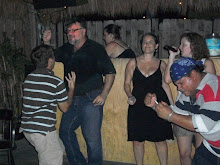John 5
Read 5:1-18.
The most ancient known documents do not include verse 4. This suggests that it may have been interpolated later to explain the phenomenon of the pool.
1. Why do you think Jesus chose that particular lame man out of the multitude of diseased people (5:7)? (See also Luke 19:10.)
2. Did the lame man demonstrate any faith? Why might this be significant?
3. Why do you suppose Jesus asked, "Do you want to get well?" (John 5:6). Why wasn't that a stupid question?
4. Imagine being a paralyzed beggar waiting thirty-eight years for an improbable cure. Yet Jesus spoke of "something worse" (5:14). What could it be? (See Matthew 16:26.)
5. Is it possible to quit sinning? (See Romans 7:14-20.) Why didjesus tell him to stop? (See Romans 3:19-31,7:21-25.)
Note: Imagine how the man felt when he found himself sinning again after Jesus' warning. But he had to try to stop on his own to be convinced that he couldn't stop. It usually takes such a stubborn, independent attempt before we try God's way. The man had to realize that it was impossible for him not to sin unless he changed his very nature. He had to be born again (John 3:3).
6. Why didjesus deliberately violate the sacrificial laws (5:16-18)? (See also Matthew 12:1-14.)
Note: Centuries of tradition had obscured what the Old Testament actually taught regarding the Sabbath. Jesus was merely giving the Sabbath its proper interpretation. One of the characteristics of tradition is that it eventually becomes authoritative. (See Mark 7:6-9.)
7. What do you observe about Jesus from John 5:17-18?
Read 5:19-30.
8. What observations can you make about Jesus' relationship with His
Father (5:19-23)? (Compare 8:28,12:48-49,14:10.) In what sense was He dependent on His Father?
9. What do you see Jesus promising in 5:24? How does one receive these promises?
10. How would you reconcile 5:29 with the teaching that spiritual life comes through faith and not works? (See 6:28-29,15:5.)
Note: The life must come first, for it is the life that produces the works.
Read 5:31-47.
11. Jesus presented five witnesses who attested to His deity (5:31-39). Who or what were they?
Note:
• Jesus Himself
• His own works
• John the Baptist
• The Father
• The Scriptures
It is possible to isolate these witnesses, casting doubt on them individually. But when they are called to the stand together, although they do not prove the divinity of Christ with human proofs, they become irrefutable.
12. What obstacle to faith do you observe in 5:44? (See also 12:42-43.) How does this still hinder people?
Subscribe to:
Post Comments (Atom)







No comments:
Post a Comment